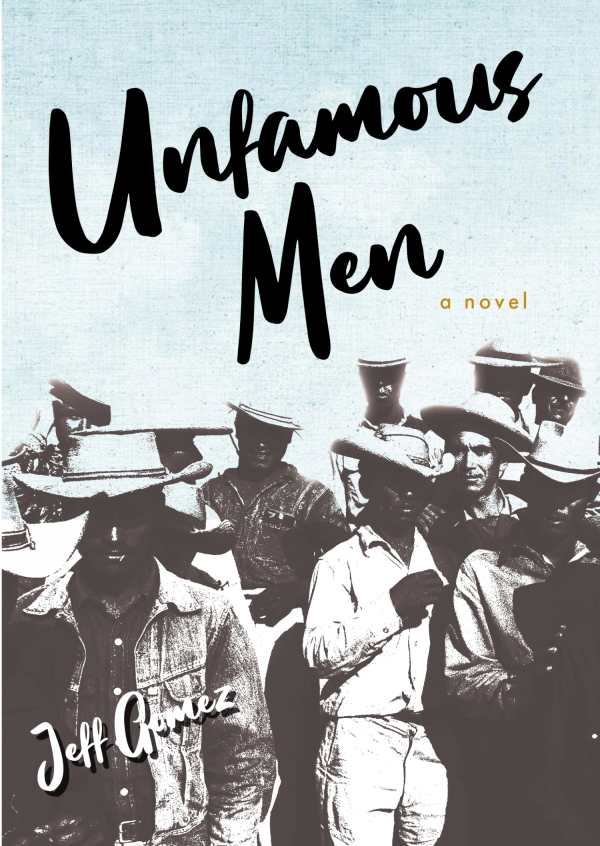Unfamous Men
In Jeff Gomez’s Unfamous Men, two friends toil as migrant field workers in California, dreaming of a better life. One is hulking, loyal, and simple; the other is ambitious, quick-tempered, and bitter. It’s an open re-envisioning of John Steinbeck’s Of Mice and Men, with an added cultural twist.
Gomez’s Mexican leads work just after World War II, instead of at the height of the Depression. Tomás is a schemer with a weakness for gambling and women; Juanito is his slow yet sensitive buddy. Banished from their hometown of Hollister, penniless, and seeking safe haven in Los Angeles, the duo end up in Ventura County, toiling as cheap laborers for a rich white landowner, his entitled son, and the son’s new Latinx bride. As Tomás is tempted by riches and the son’s wife, Juanito attempts to keep him out of trouble. The text exposes lesser-known elements of Latinx history in the US, including the plight of the “Californios”: the Californian landowners of Mexican descent who had their lands ripped out from under them during the Gold Rush.
Forced to be subservient, conceal their ability to understand English, and work themselves to the bone picking lemons, Tomás, Juanito, and their comrades embody the tragedies that befall minority populations in the US. The story’s strength lies in its sympathetic presentation of put-upon, resentful farmhands. They may be forgotten by history, but Gomez gives them their due. His terse, powerful, and to-the-point prose evokes the dusty towns of post-war America and the migrant workers’ wearying conditions.
While Unfamous Men doesn’t quite escape the shadow of the Steinbeck novel it’s based upon, it reconfigures incidents and outcomes to surprising effect. Its emphasis on racial and cultural conflict make it a timely and worthwhile reimagining of a classic.
Reviewed by
Ho Lin
Disclosure: This article is not an endorsement, but a review. The publisher of this book provided free copies of the book to have their book reviewed by a professional reviewer. No fee was paid by the publisher for this review. Foreword Reviews only recommends books that we love. Foreword Magazine, Inc. is disclosing this in accordance with the Federal Trade Commission’s 16 CFR, Part 255.

